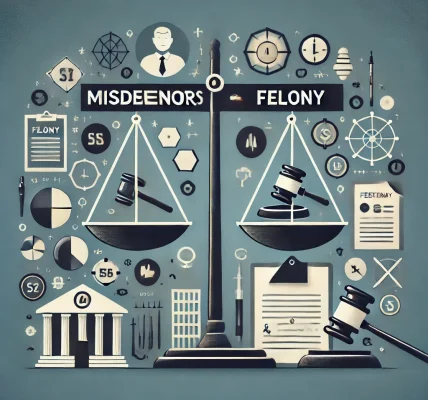Introduction
Self-defense is a fundamental legal concept that allows individuals to protect themselves from harm. However, the right to self-defense is not unlimited, and laws governing it vary by jurisdiction. Understanding the legal boundaries of self-defense is crucial to ensure that actions taken in the heat of the moment do not lead to criminal charges.
This article explores the legal aspects of self-defense, the different types of self-defense laws, when force is justified, and how courts determine the legitimacy of self-defense claims.
1. What Is Self-Defense?
Self-defense is the use of reasonable force to protect oneself or others from an imminent threat of harm. It is a defense used in legal proceedings to justify actions taken against an aggressor.
Key Elements of Self-Defense:
- Imminent Threat: The danger must be immediate and real.
- Proportional Response: The level of force used must be appropriate to the threat.
- Reasonable Belief: The person must genuinely believe they are in danger.
- Retreat (in some jurisdictions): Some laws require individuals to attempt to retreat before using force.
2. Types of Self-Defense Laws
Different countries and states have varying legal principles that define when and how self-defense can be used. These include:
a) Stand Your Ground Laws
These laws allow individuals to use force, including deadly force, without a duty to retreat if they are in a place they have a legal right to be and feel threatened.
- Found in many U.S. states.
- No obligation to retreat before using force.
- Often applies to home, public spaces, and workplaces.
b) Duty to Retreat
Some jurisdictions require individuals to retreat, if possible, before using force in self-defense.
- Applies in countries like Canada and certain U.S. states.
- Deadly force is only justified if retreat is not possible or safe.
c) Castle Doctrine
This legal principle allows individuals to use force, including deadly force, to defend themselves in their homes without the duty to retreat.
- “A man’s home is his castle.”
- Primarily applies to home intrusions.
- Limits force to cases where unlawful entry or harm is evident.
3. When Is Force Justified?
The use of force in self-defense is justified under certain conditions. However, excessive force can lead to legal consequences. Here are situations where force may be legally permissible:
a) Protection Against Physical Assault
- If someone physically attacks you, using force to stop the attack is typically justified.
- The response must be proportionate to the attack.
b) Defense Against Sexual Assault
- Self-defense laws allow the use of force to prevent sexual violence.
- Victims are not required to retreat before defending themselves.
c) Preventing a Home Invasion
- Under the Castle Doctrine, deadly force may be justified if an intruder poses a threat.
- Must be a reasonable belief that harm is imminent.
d) Defense of Others
- Laws often permit individuals to use force to protect others from harm.
- The threat to the other person must be immediate and real.
e) Protecting Property
- In most jurisdictions, using deadly force to protect property alone is not justified.
- Non-lethal measures, such as physical restraint, may be acceptable.
4. How Courts Determine the Legitimacy of Self-Defense Claims
If a self-defense claim is made in court, several factors are considered:
a) Was There an Imminent Threat?
- The court examines whether the perceived threat was real and immediate.
b) Was the Response Proportionate?
- Excessive force beyond what was necessary may not qualify as self-defense.
c) Did the Defendant Provoke the Attack?
- If the defendant initiated the altercation, self-defense may not apply.
d) Did the Defendant Have a Duty to Retreat?
- In jurisdictions with duty-to-retreat laws, failure to escape when possible may weaken a self-defense claim.
e) Was There a Reasonable Belief of Danger?
- The court assesses whether a reasonable person in the same situation would have felt endangered.
5. Legal Consequences of Misusing Self-Defense
Misinterpreting self-defense laws or using excessive force can lead to criminal charges, including:
- Assault or Homicide Charges: If force is deemed unnecessary or disproportionate.
- Civil Lawsuits: Victims or their families may sue for damages.
- Criminal Negligence: If reckless actions lead to harm.
- Unlawful Possession of Weapons: In some cases, using an illegal weapon in self-defense can result in charges.
6. How to Protect Yourself Legally When Using Self-Defense
If you ever need to use force in self-defense, follow these legal precautions:
a) Call Law Enforcement Immediately
- Report the incident and provide an honest account.
- Cooperate with authorities.
b) Gather Evidence
- If possible, document injuries and record witness statements.
c) Avoid Making Statements Without Legal Counsel
- Do not admit guilt or provide unnecessary details until consulting a lawyer.
d) Understand Your Local Self-Defense Laws
- Laws vary by jurisdiction; knowing them can prevent legal trouble.
7. Conclusion
Self-defense is a fundamental right, but it comes with legal limitations. Understanding when force is justified, the different self-defense laws, and the consequences of excessive force can help individuals act responsibly. While protecting yourself or others from harm is essential, ensuring that actions remain within legal boundaries is equally crucial.




